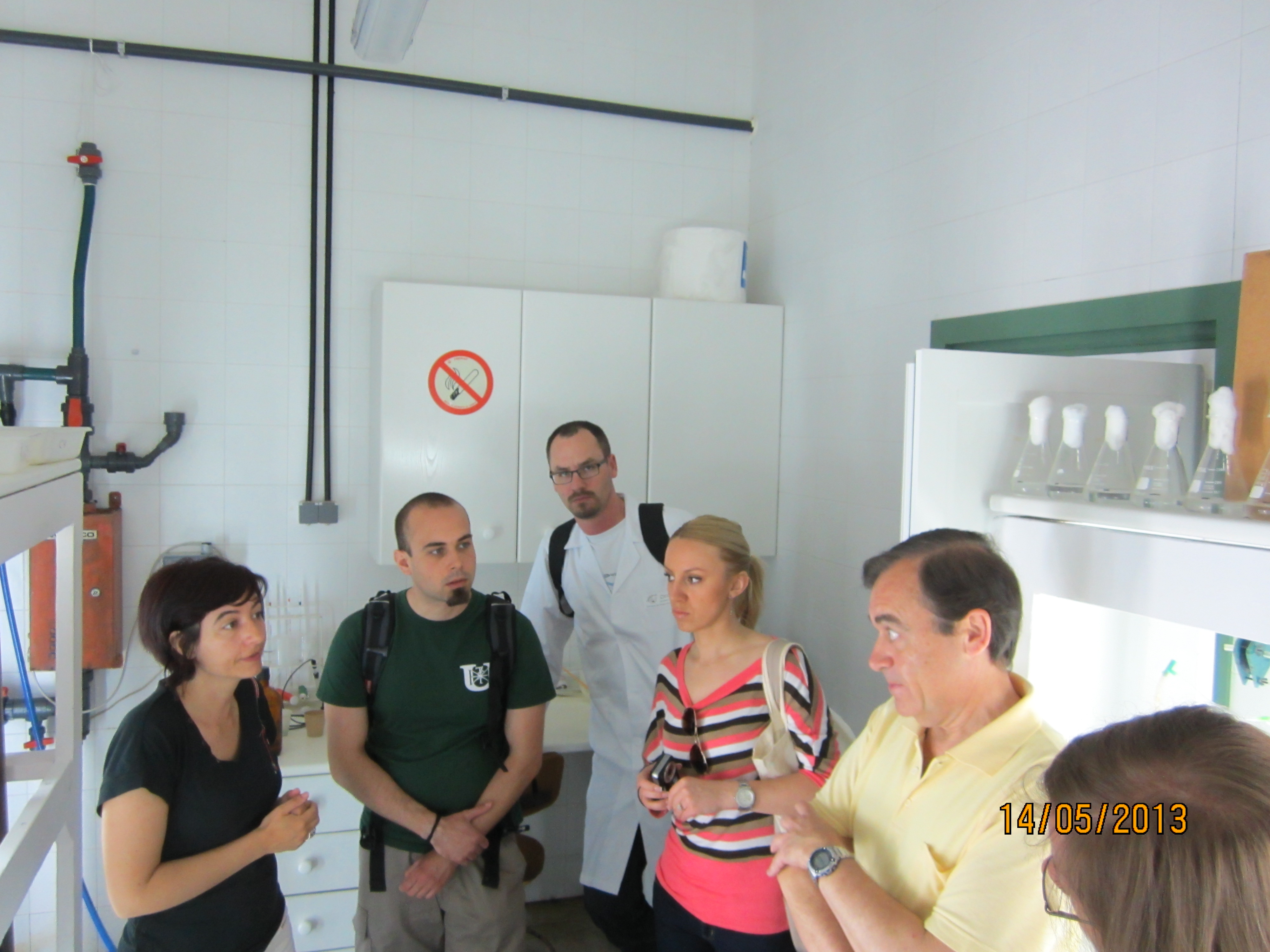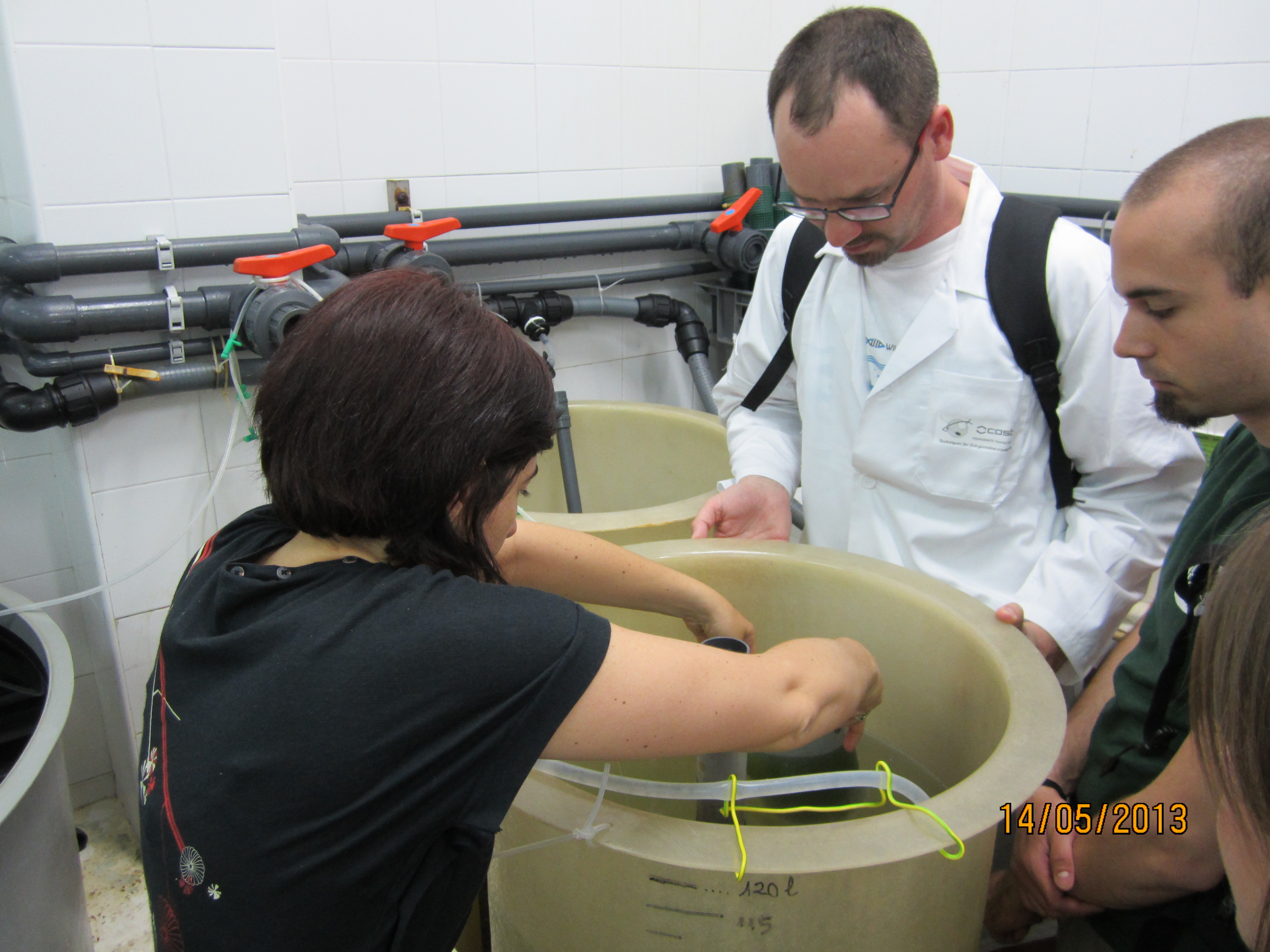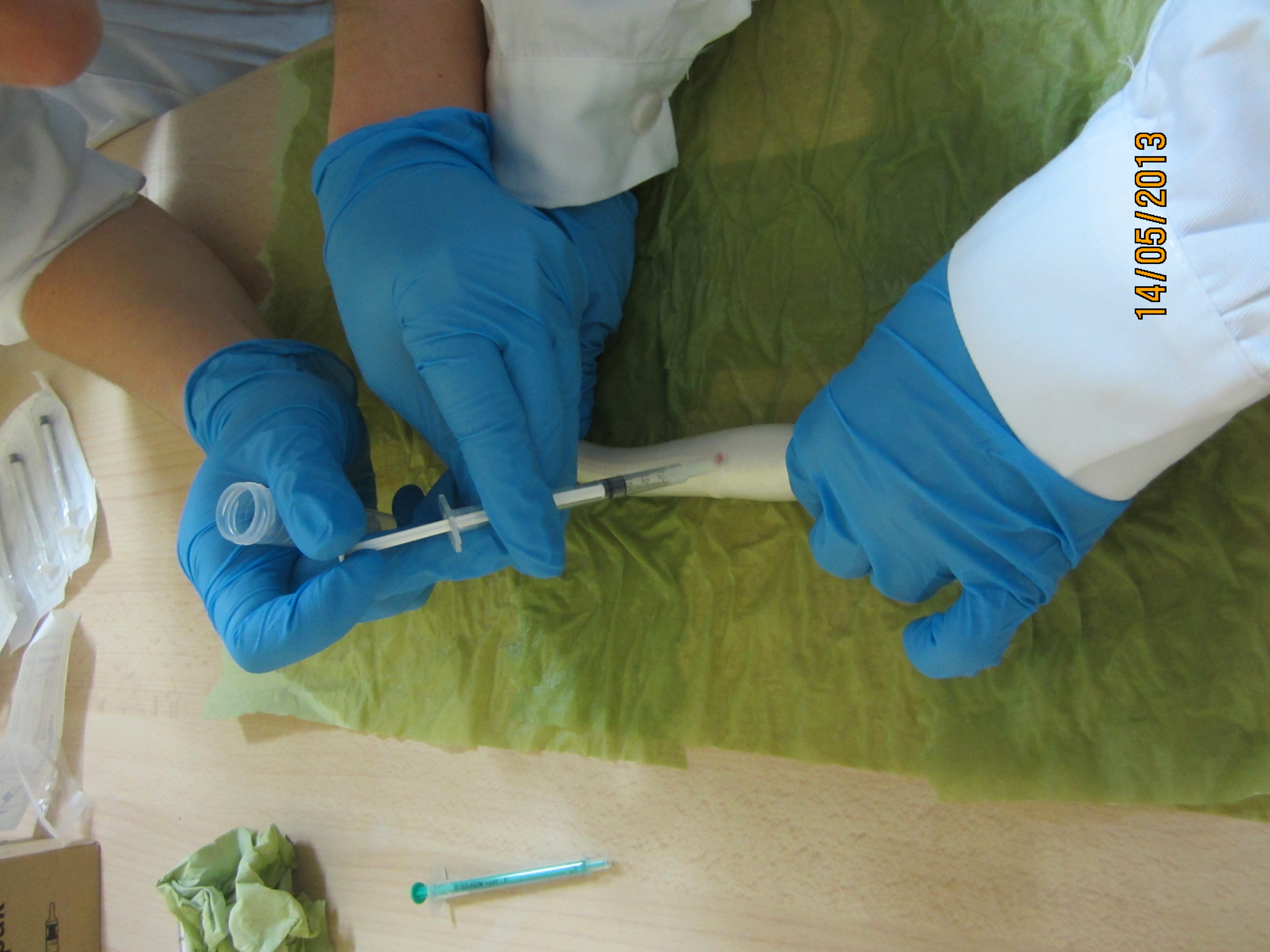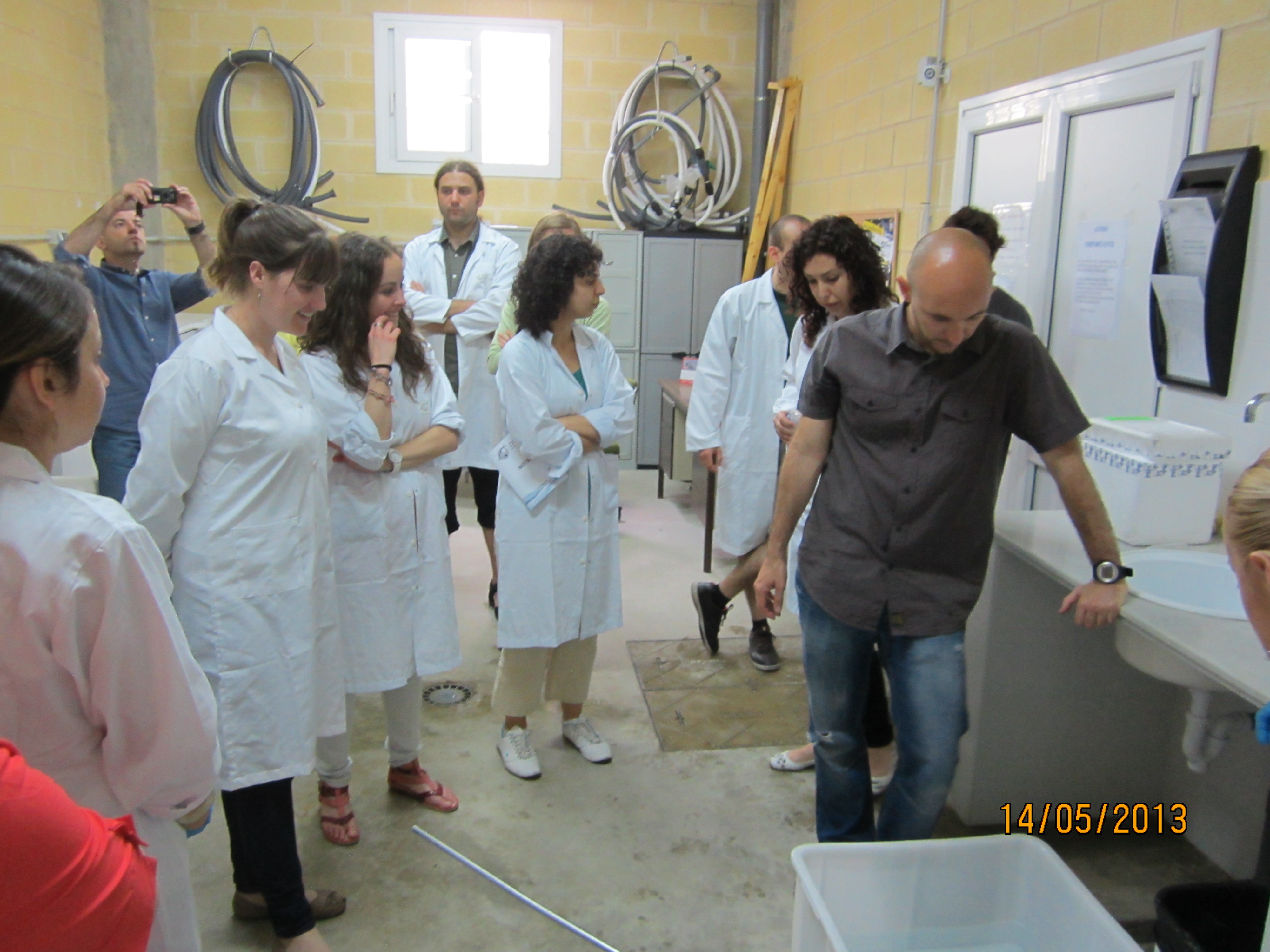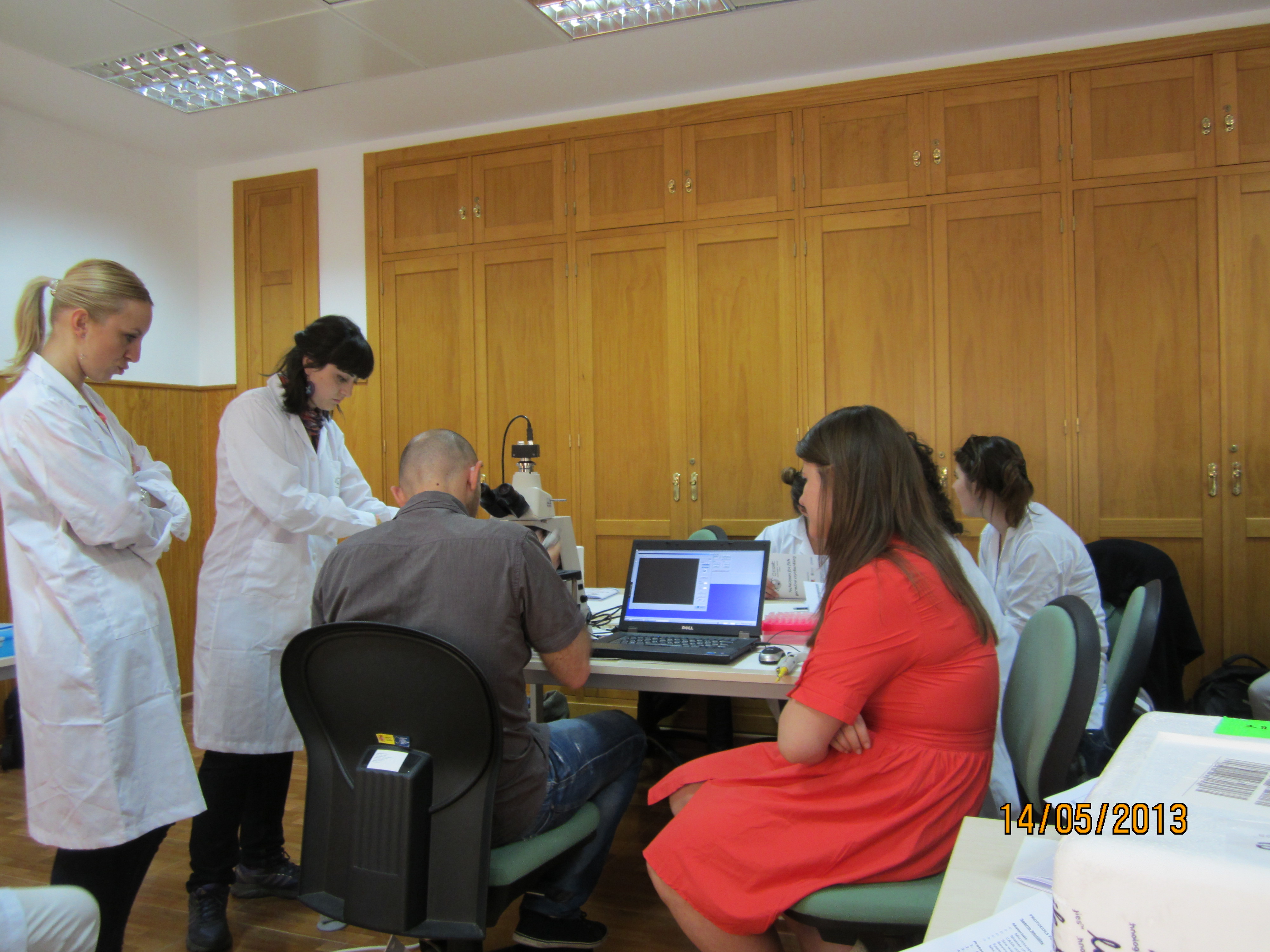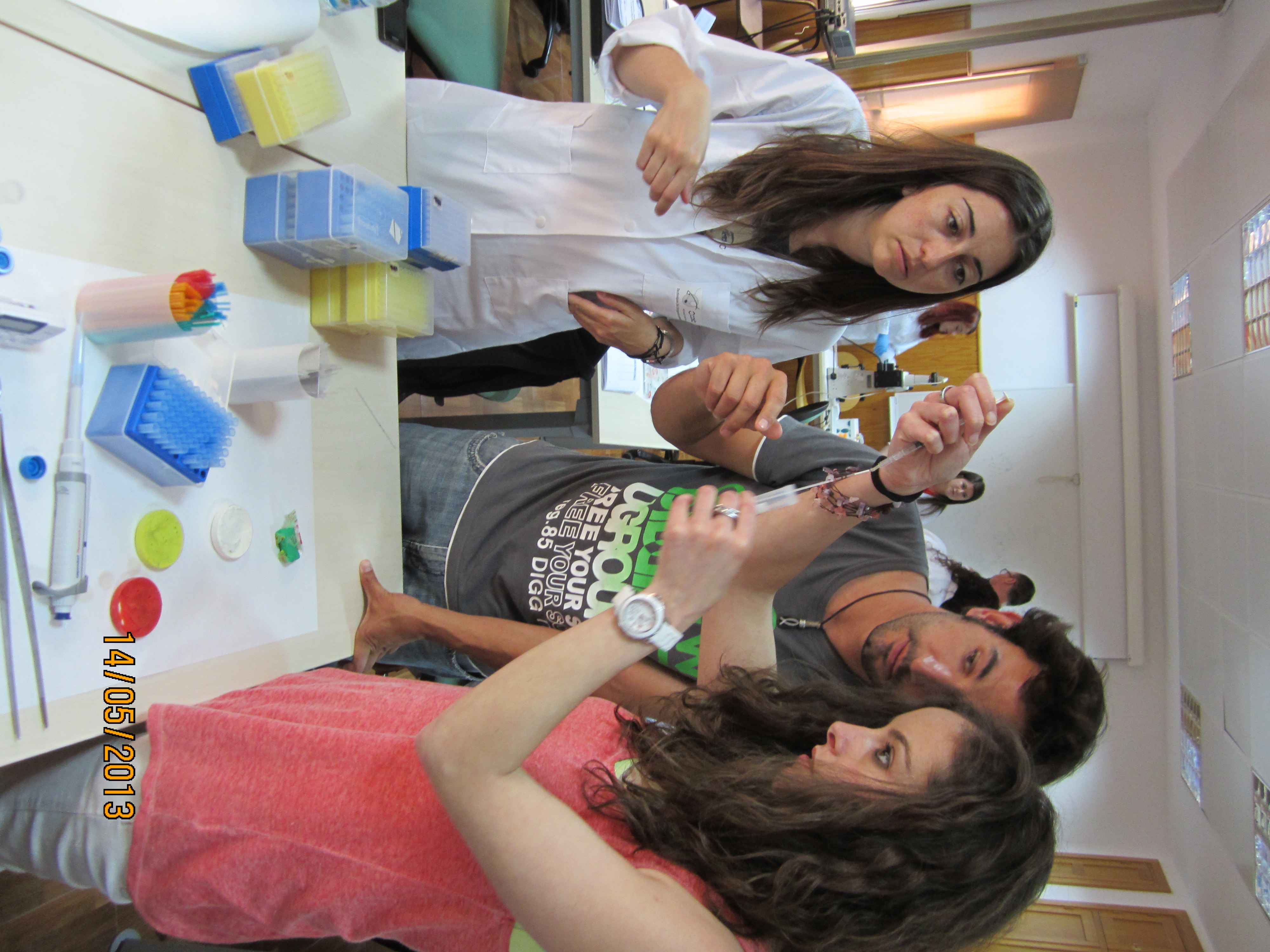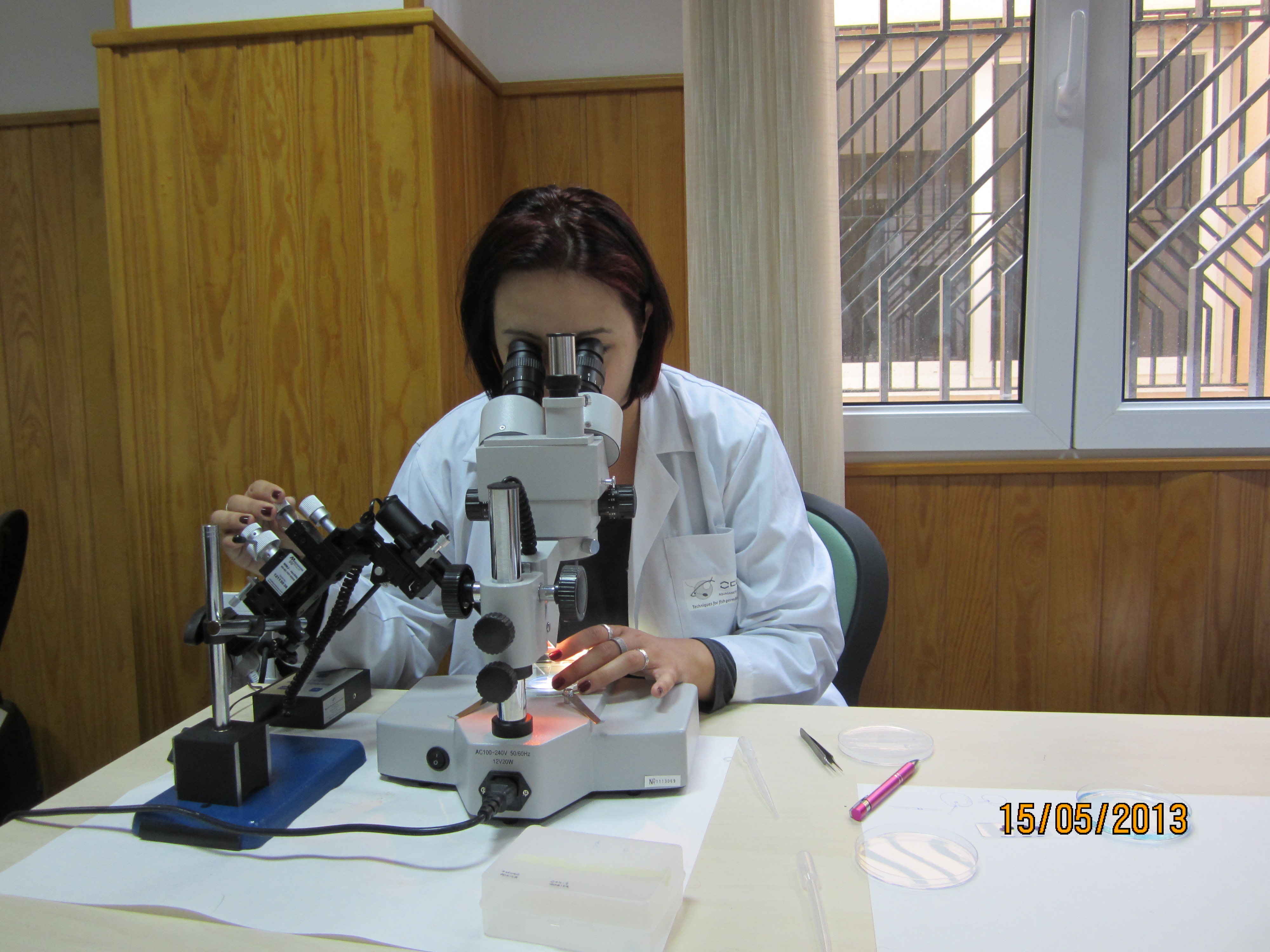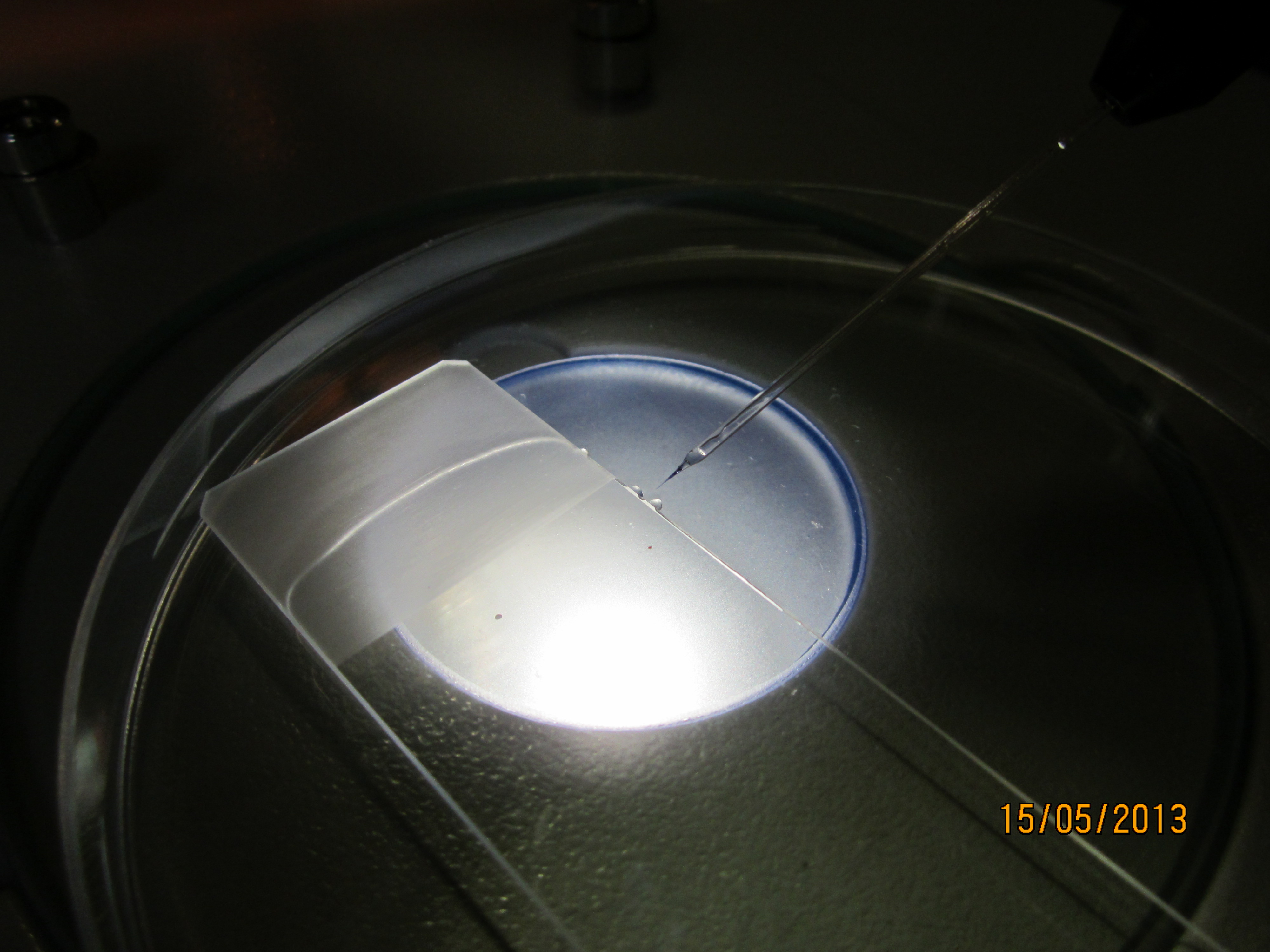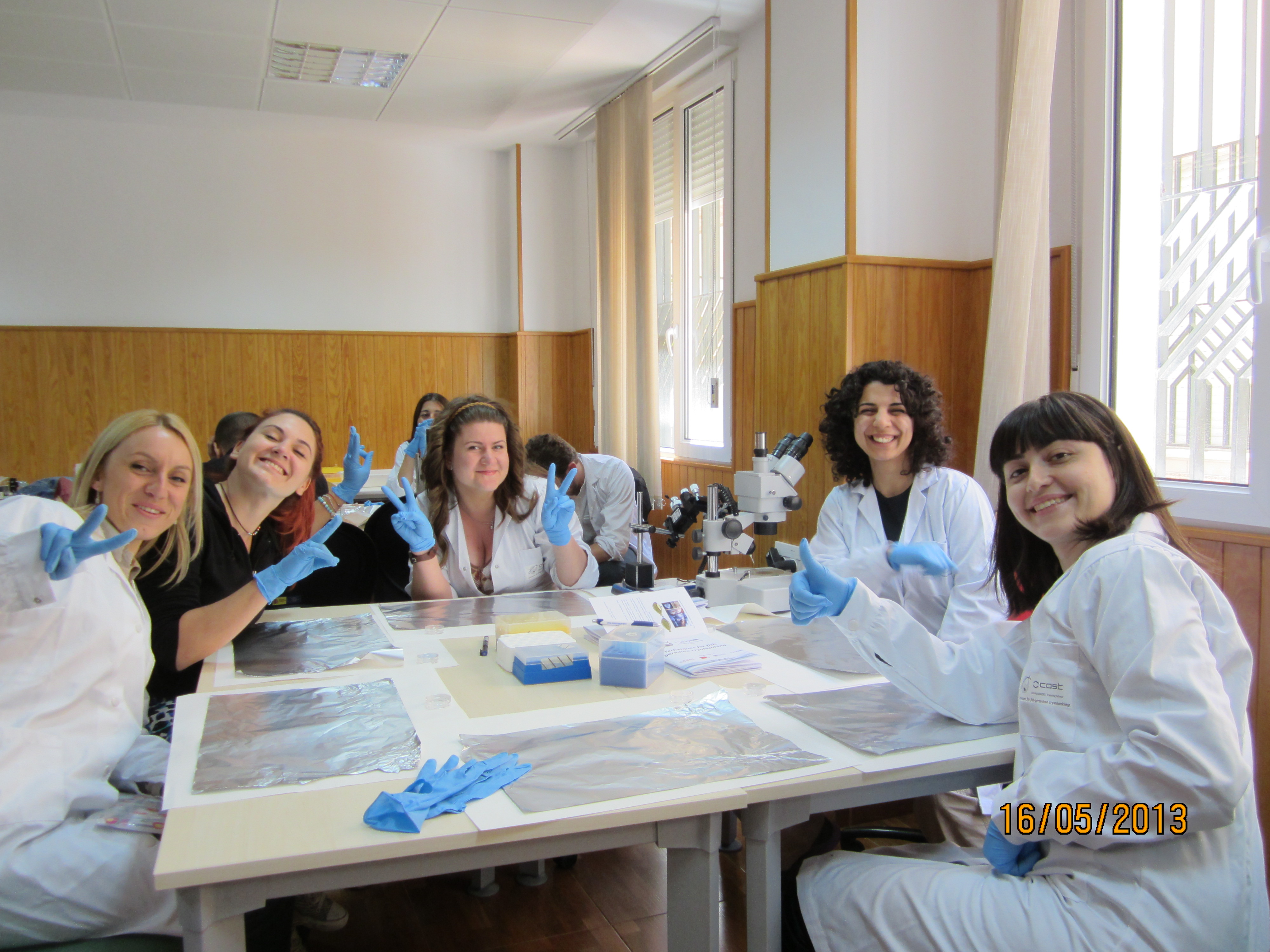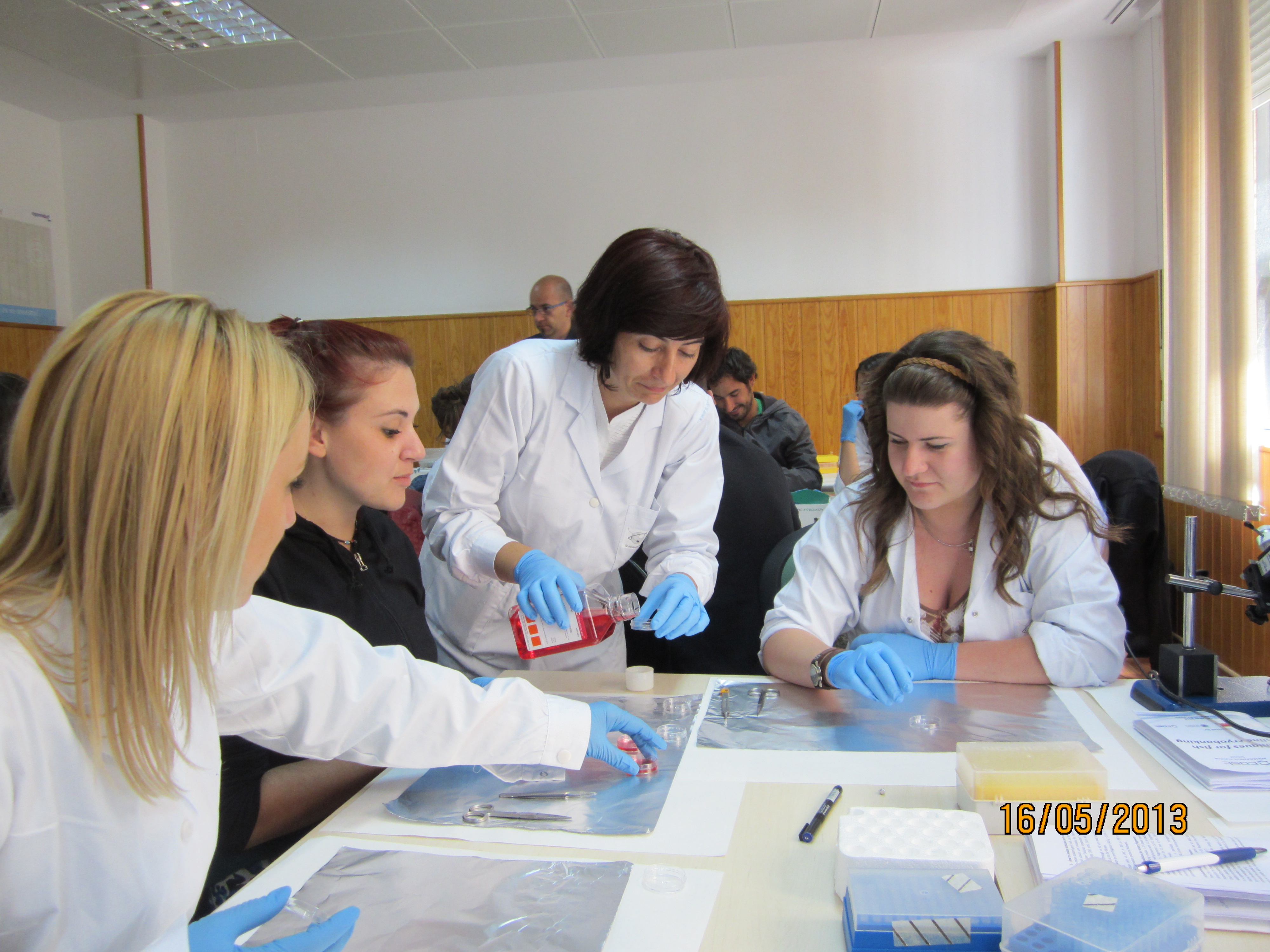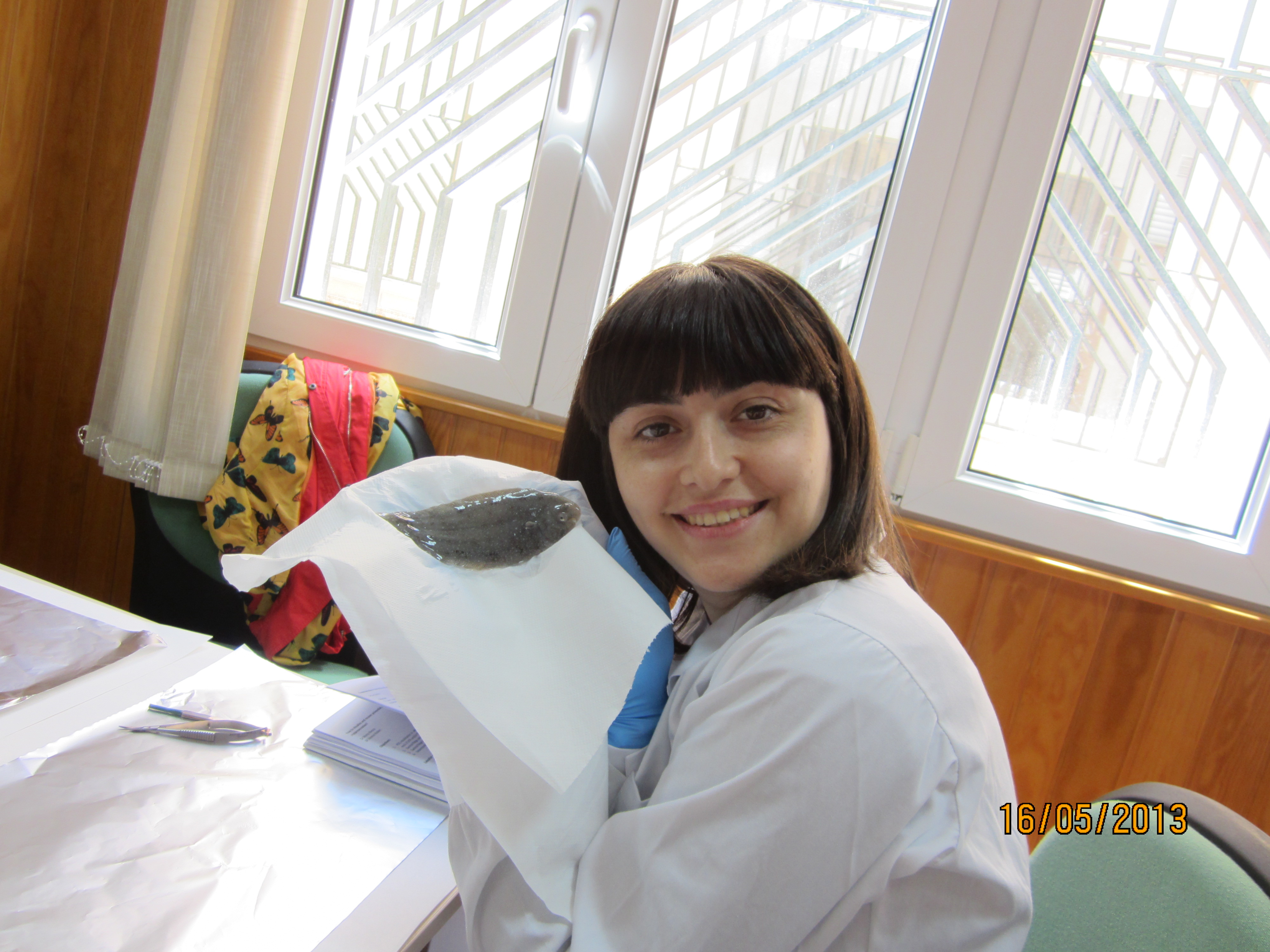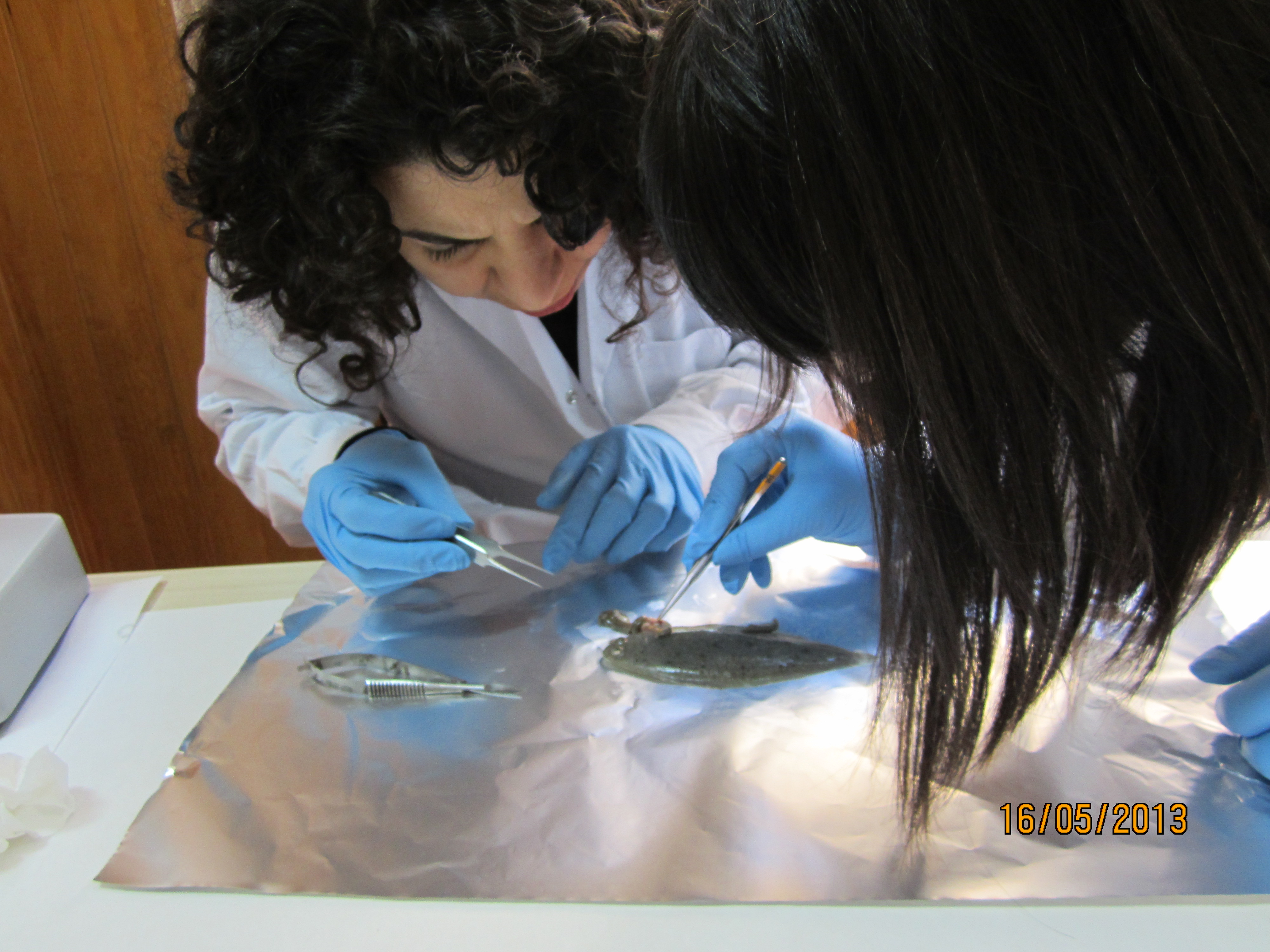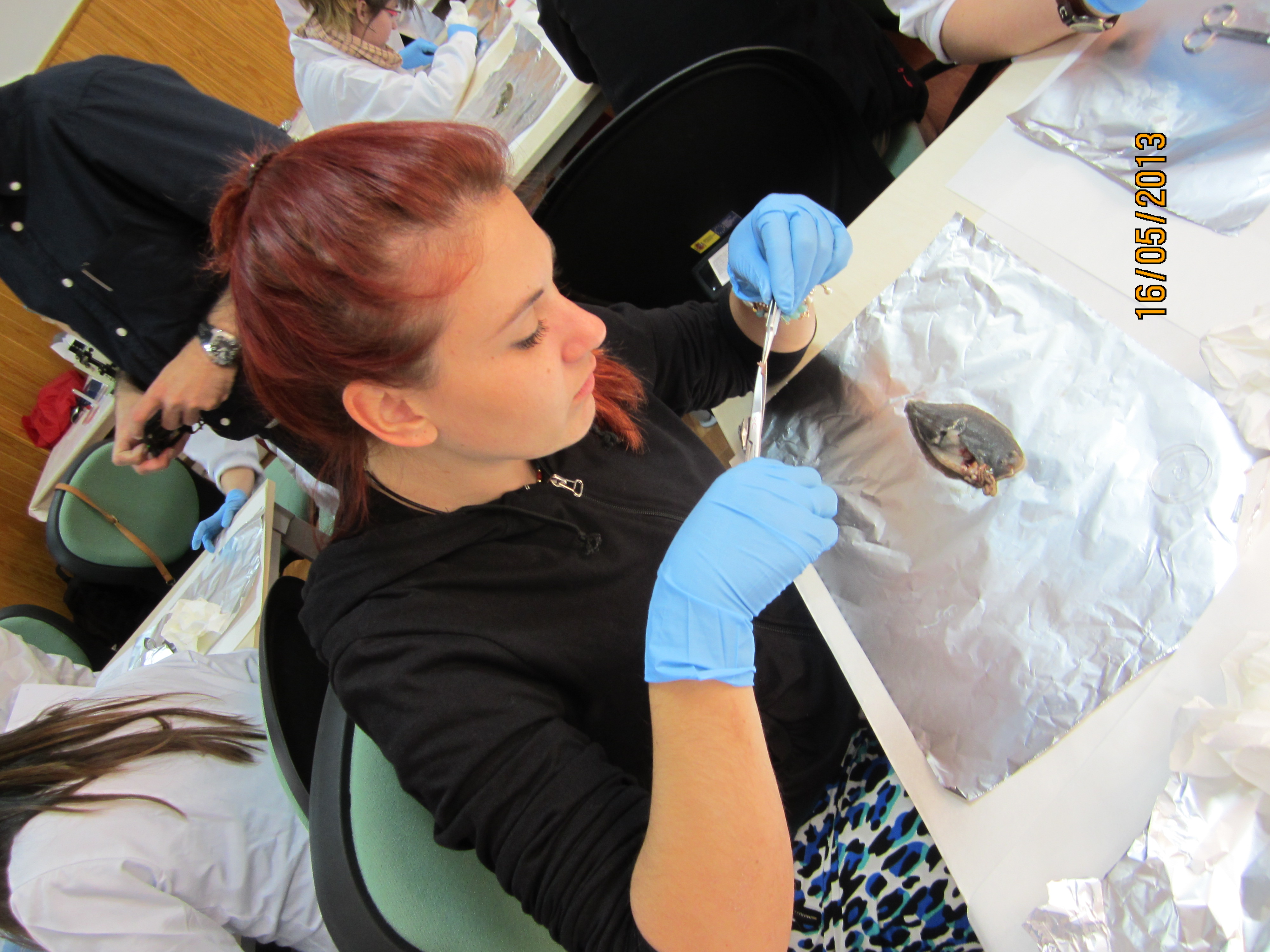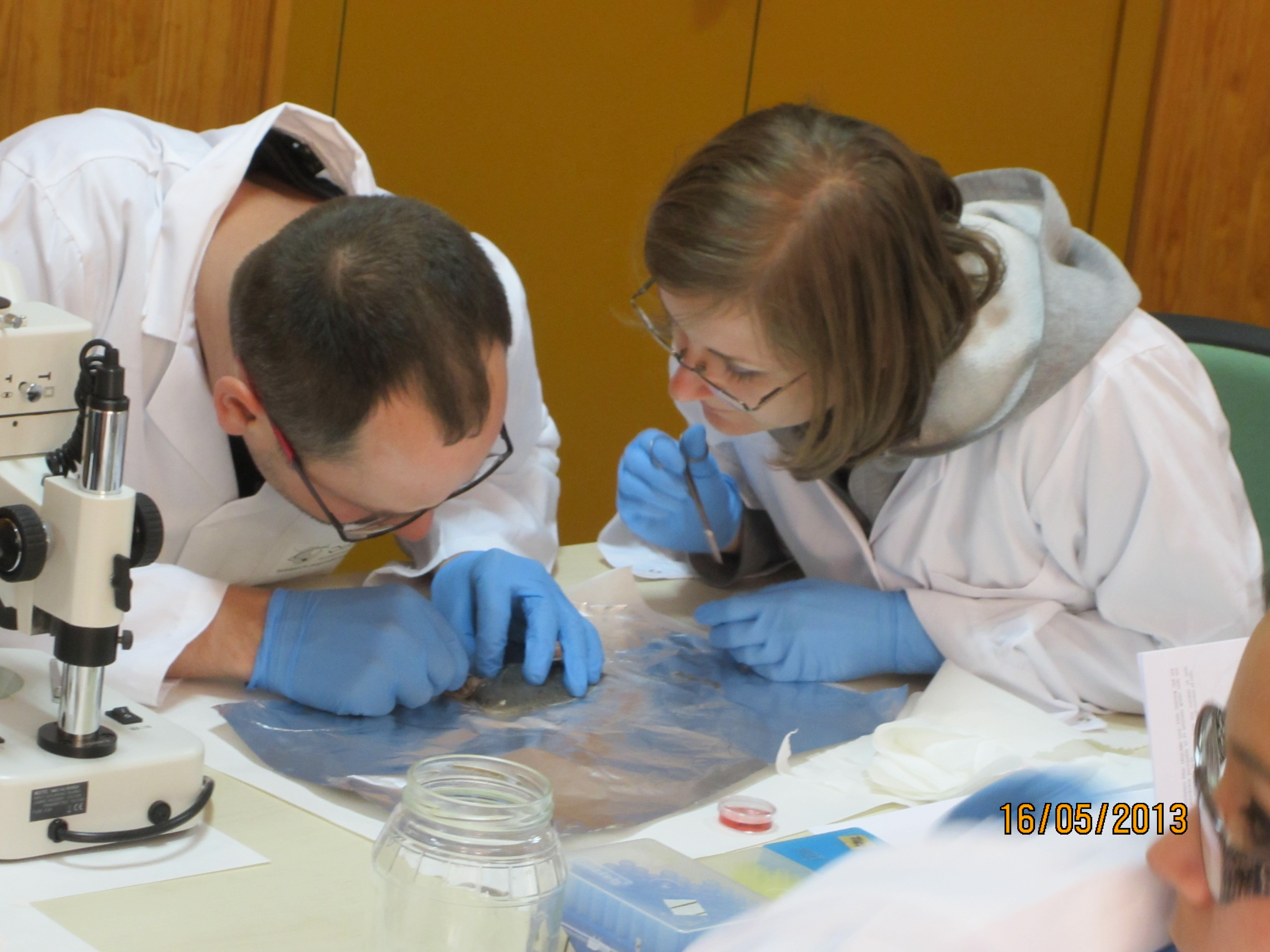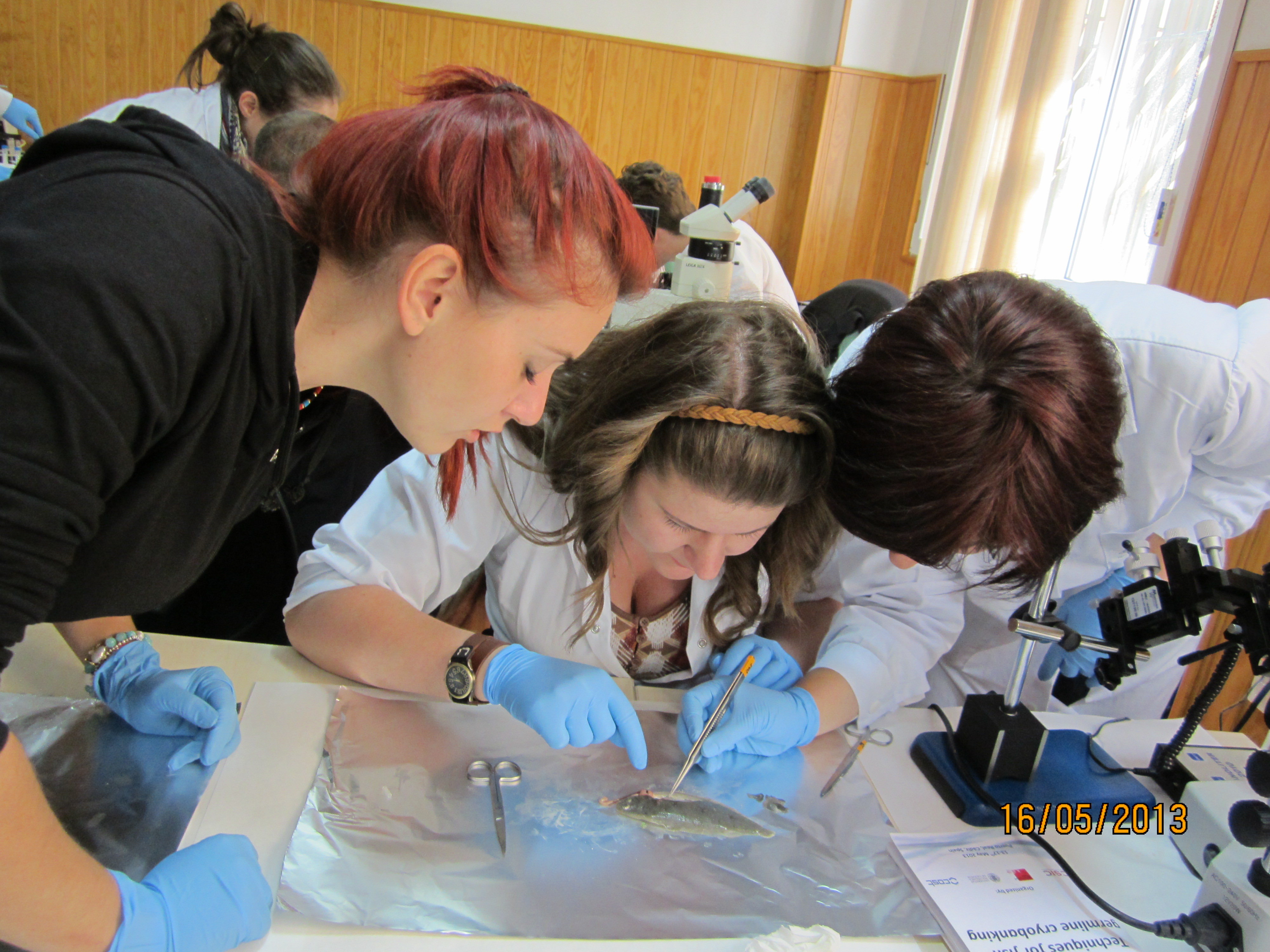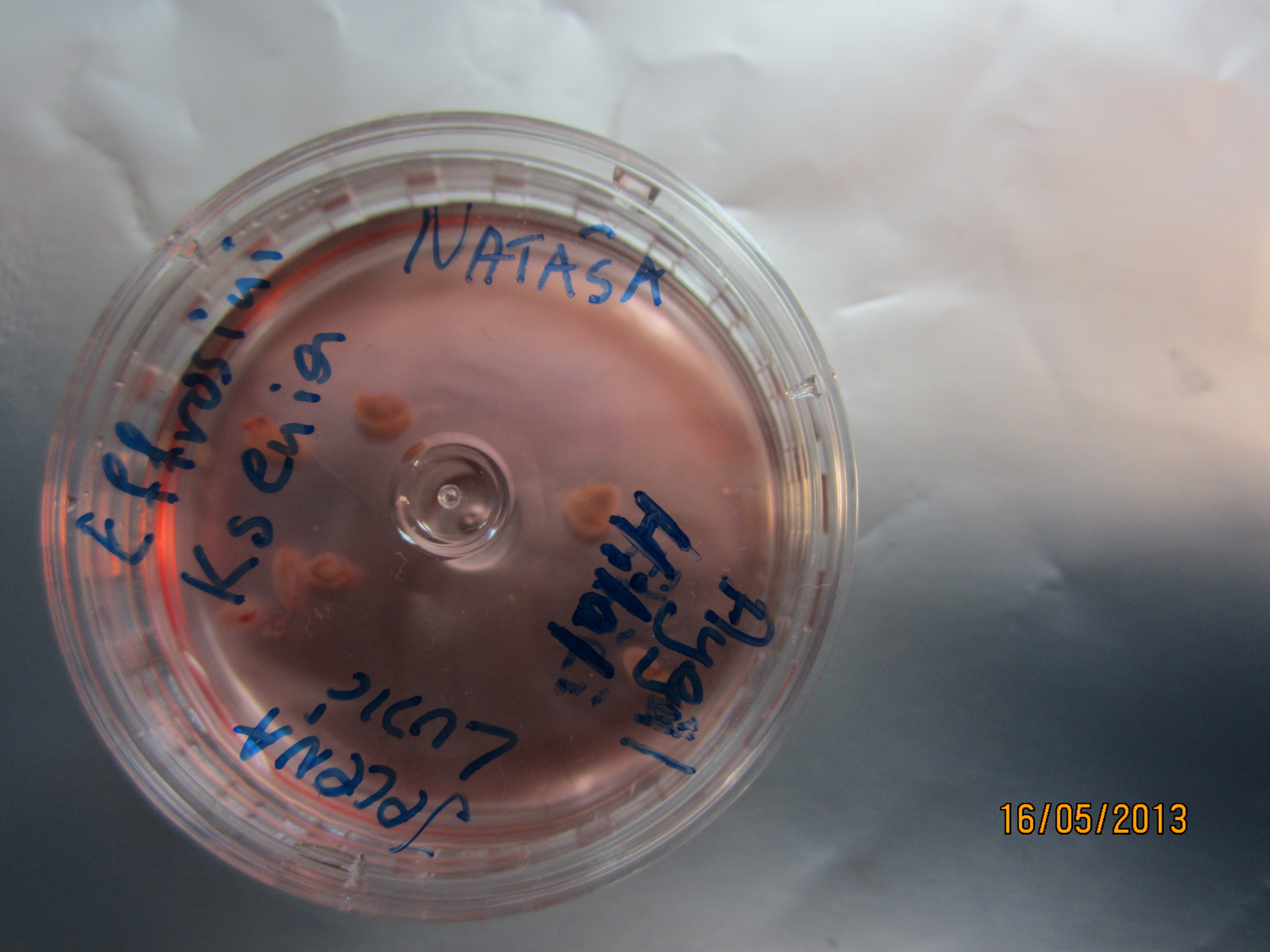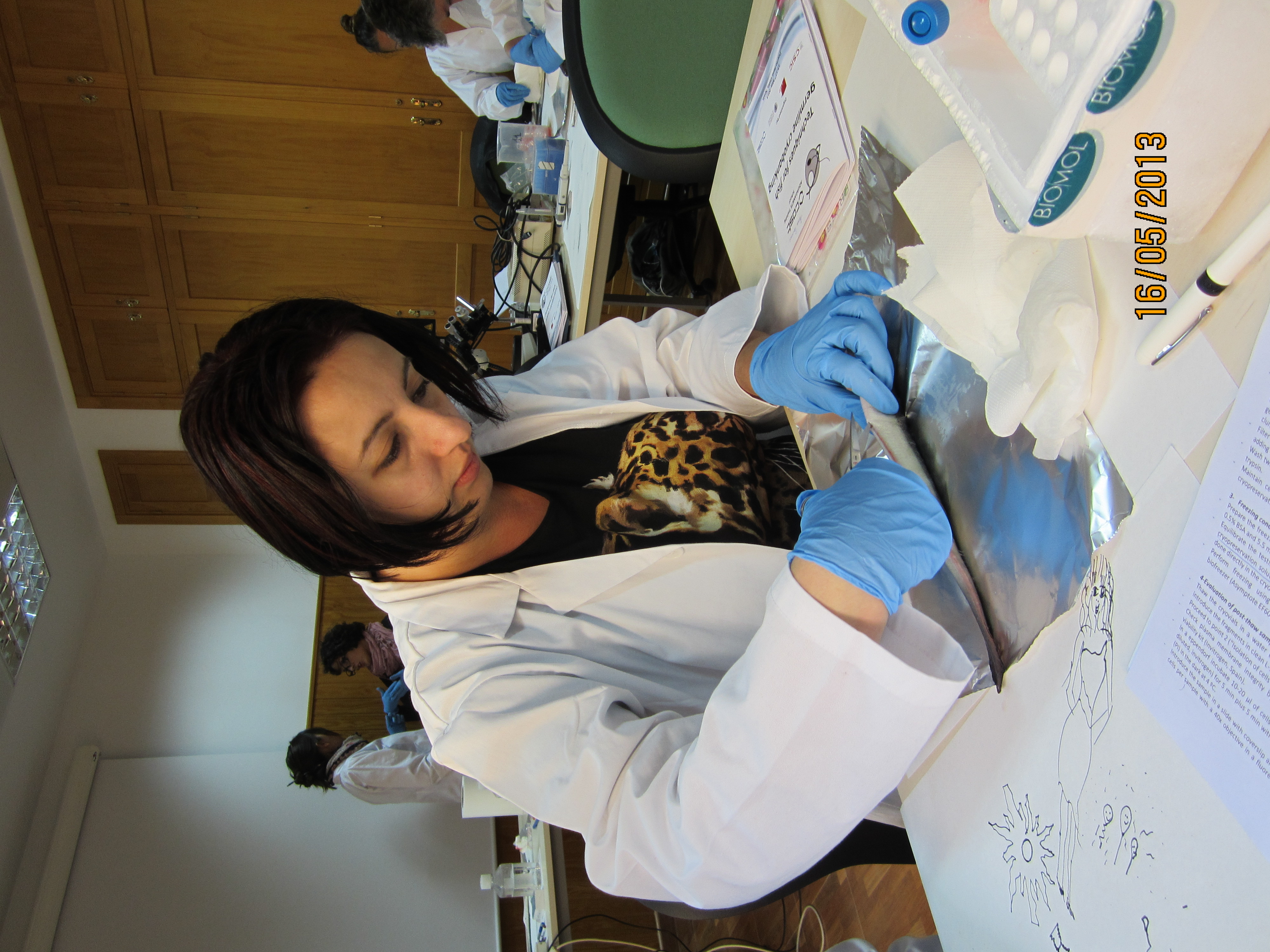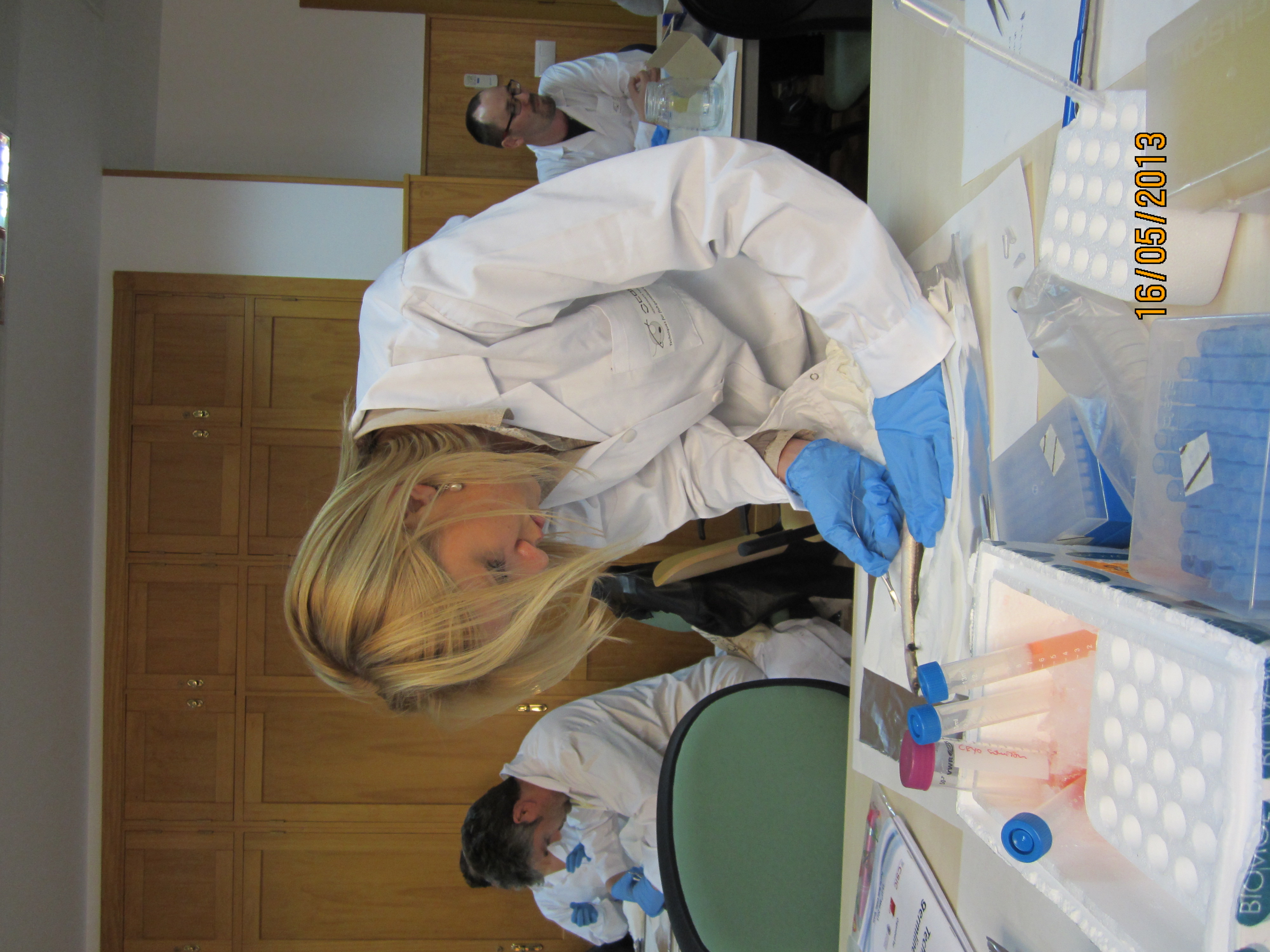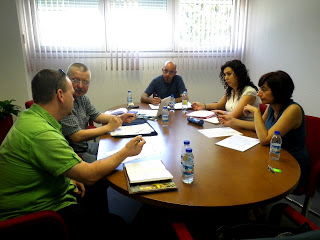2nd call for STSMs
Dear friends and members of the COST AQUAGAMETE Action,
I would like to announce the second call of STSMs.
The procedure for STSMs:
1) Please prepare the application according to instructions in the call and send all documents on the email of STSMs coordinator Martin Psenicka psenicka@frov.jcu.cz and Chair of COST action Juan F. Asturiano (aquagamete@gmail.com) in copy until 30th of June 2013.
2) STSMs coordinator will send all applications to the assessment panel (Julien Bobe Julien.Bobe@rennes.inra.fr, Elsa Cabrita elsa.cabrita@icman.csic.es, Andrzej Ciereszko a.ciereszko@pan.olsztyn.pl, Oliana Carnevali o.carnevali@univpm.it, Akos Horvath Horvath.Akos@mkk.szie.hu and Juan F. Asturiano for evaluation.
3) The assessment panel will evaluate the applications and send it back to STSMs coordinator and Juan F. Asturiano in copy till 31st of July 2013. The evaluations sent after this date cannot be considered.
4) STSMs coordinator will select the winners according to the scores and inform all applicants about their success/unsuccess.
5) The missions have to be accomplished in the period from 1st September to 15th December 2013.
6) Within 4 weeks after mission STSMs coordinator will collect reports from missions, publish it on our web and send a notice to the COST office with the confirmation that the STSM has been successfully accomplished and that the grant can be paid.
Please contact me in case of any question.
Yours sincerely,
Martin Psenicka, PhD
Head of Laboratory of Reproductive Physiology
University of South Bohemia in Ceske Budejovice
Faculty of Fisheries and Protection of Waters
Research Institute of Fish Culture and Hydrobiology
Zatisi 728/II, 389 25 Vodnany
Tel.: +420 725 787 925
5th day of 1st AQUAGAMETE Training School
The 5th and last day of the Training School started with the conference of Dr. Catherine Labbé (INRA, Rennes, France) entitled “Diploid genome preservation and regeneration: the strength and pitfalls of isolated embryonic and somatic cells”, in which she talked about how somatic cell cryopreservation is an alternative to store complete genome of an individual (and not only an haploid set as in the case of sperm), which can also be obtained independently from the reproductive cycle of the species of interest (contrarily to the case of primordial germ cells, PGCs, or spermatogonias).
The second part of her presentation was based on techniques for cellular transplant (cloning) necessary to obtain a fish from cells not destined to complete the reproductive cycle. She paid special attention to how epigenetic factors are involved in the re-programming of a somatic cell in an embryonic cell.
With some technical difficulties, finally Dr. Samyra Lacerda (Universidad Federal de Minas Gerais, Brasil) could make send, under a format of several videos, her presentation entitled “Germ cell transplantation as a potential biotechnological approach to fish reproduction”, based on different modalities of PGCs transplant applied in fish and their potential future applications. We had the chance to contact her by skype and thank her collaboration.
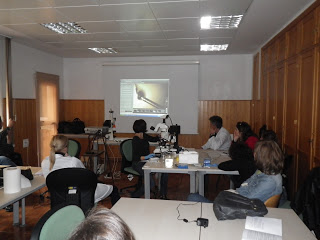
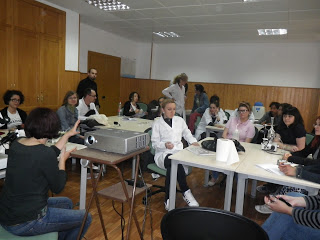
The workday was closed with the last practical session, entitled “Usefulness of cryopreserved material: microinjection of post-thaw germ cells”, where Dr. Elsa Cabrita and Dr. Vanesa Robles performed a demonstration of how to microinject cells in sole larvae, as a logical continuation of the practical session of the day before, in which fragments of testicular tissue were frozen. For cell transplanting, frozen testicular tissue has to be thawed and enzimatically dispersed, to obtain cells which can be microinjected.
With this, the Training School finished. According to the surveys, the general feeling was that students enjoyed their participation in this Training School. All of us were happy with the organization, with the quality of presentations by invited trainers and with the kindness of ICMAN-CSIC staff, especially Dr. Elsa Cabrita.
4th day of 1st AQUAGAMETE Training School
The 4th day of the Training School (Thursday 16th of May) started with a conference by Dr. Vanesa Robles (Universidad de León, Spain), entitled “Analysis of cryopreserved material”, which was dedicated to review the different techniques for evaluation of the quality of different kinds of cells which can be frozen and guarantee their viability.
During the rest of the morning, a series of three shorter presentations, with the common title of “Cryopreservation in aquatic species: case studies” were given by Dr. Elsa Cabrita (ICMAN-CSIC), who talked about their experiments with grouper, Dr. Paz Herráez (Universidad de León, Spain), who explained their experiments in salmonids and Dr. Juan F. Asturiano (UPV, Spain), who focussed his talk to their works on cryopreservation of eel sperm.
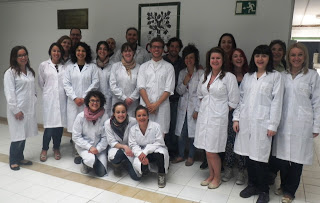
In the afternoon, Dr. Elsa Cabrita and Dr. Marta Fernández Riesco conducted a practical session entitled “Cryopreservation of primordial and testicular germ cells”. Students extracted testis from sole specimens (donated by ICMAN-CSIC) and from European eel (donated by Valenciana de Acuicultura, S.L.).
Sole testicular tissue was diced and maintained in culture medium, according to the usual protocol for freezing for later extraction of spermatogonia. Once the process was finished, samples were distributed in cryotubes containing freezing medium, and they were frozen.
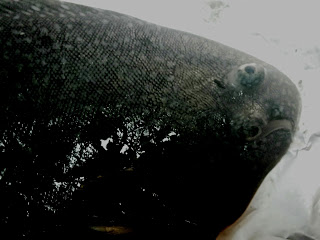
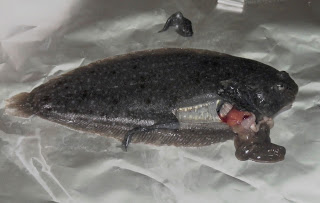
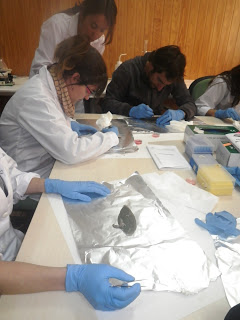
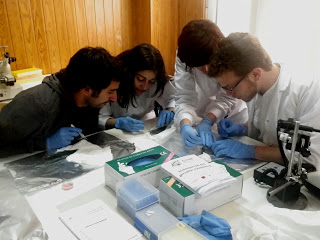
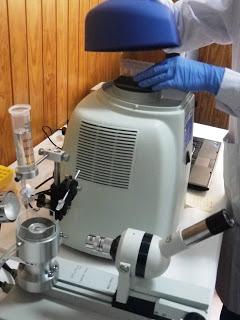
3rd day of 1st AQUAGAMETE Training School
The program for Wednesday 15th started with a conference by Dr. Ákos Horváth (Szent István University, Hungary) entitled “Standardization of procedures and reporting in cryopreservation”, in which he made a review of ideas, showing the need of standardization of protocols and guidelines, which is the fundamental axis and main objective of AQUAGAMETE.
After a break, we enjoyed the conference of Dr. Paz Herráez (Universidad de León, Spain), entitled “What types of cells can we preserve and for what purpose”, in which she showed the wide variety of possibilities regarding the type of cells (somatic, blastomers, gametes) that can be used with the aim of cryopreserving genetic material, emphasizing the case of fish.
In the afternoon, Dr. Marta Fernández Riesco and Dr. Vanesa Robles (Universidad de León, Spain) conducted a practical session entitled “How to visualize and recover primordial germ cells for further cryopreservation?”. Students had to first melt capillaries for preparing the injection tips, file their ends in an appropriate angle and finally, using their own just made tips, they made their first practices with microinjectors, injecting trypan blue dyed medium in zebrafish eggs.
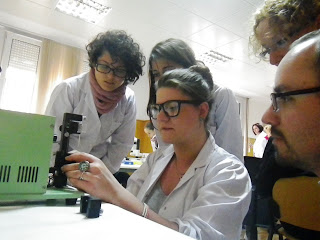
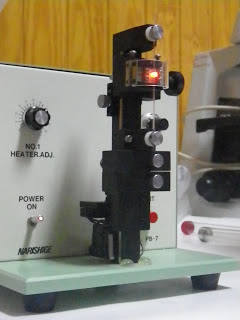
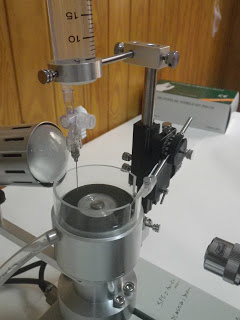
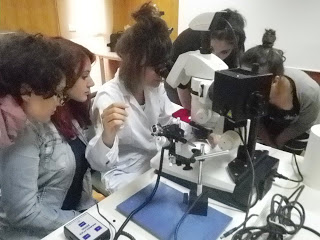
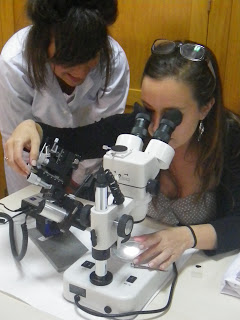
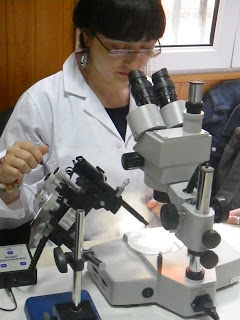
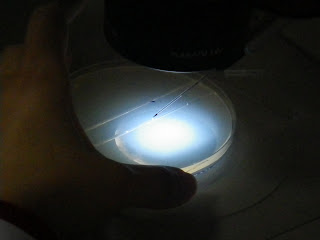

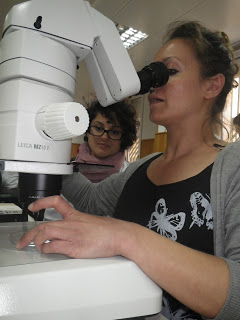
The working day ended with the visit to the facilities of Centro Tecnológico de Acuicultura (CTAQUA). Very kindly, the staff explained to the group their objectives and functioning. They showed us all the facilities, which have a great potential to this sector.
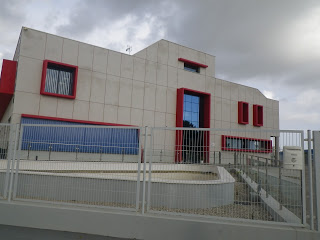
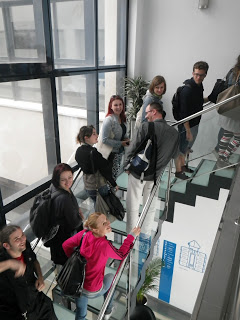
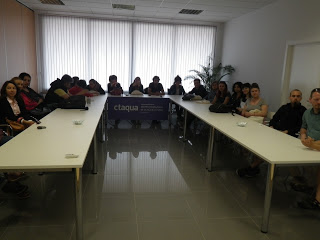
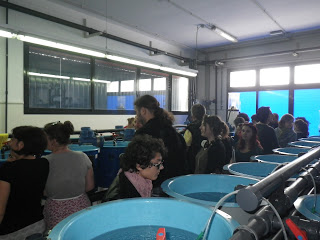
2nd day of 1st AQUAGAMETE Training School
Tuesday 14th of May, the second day of the Training School took place. It started with the welcome of the ICMAN-CSIC Manager, Dra. Carmen Sarasquete, and the rest of the Organising Committee: Dr. Elsa Cabrita (ICMAN-CSIC), Dr. Paz Herráez (Universidad de León), Dr. Vanesa Robles (Universidad de León) and Juan F. Asturiano (UPV).
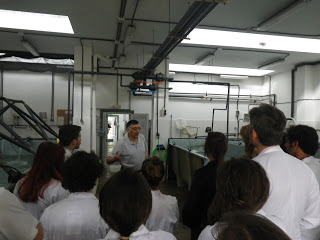
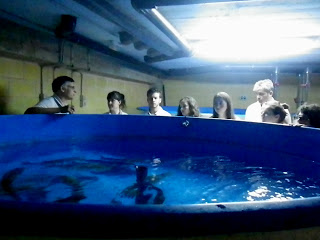
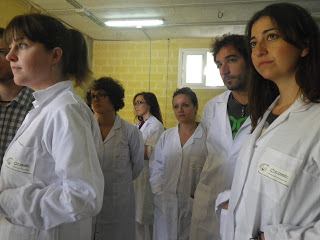
Right after, Dr. Elsa Cabrita and Dr. Francisco Prat (in the pictures) showed the ICMAN-CSIC facilities to the group, including the different tank rooms, those destined to auxiliary culture and to ecotoxicology experiments, and rules for their use during the week of the course were taught to students.
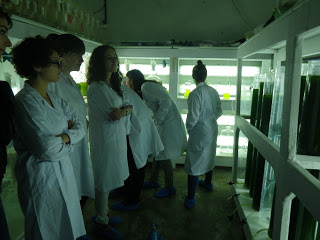
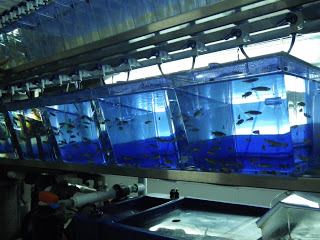
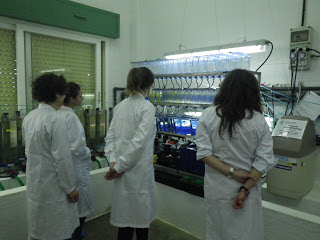
To end the morning session, Prof. Barry Fuller (UCL Medical School & Royal Free Hospital, London) gave a lecture entitled “Low temperatures and the Lazarus factor; recovering life from the extremes in applied cryobiology”, in which he made a fabulous review of pioneer studies of cryopreservation, its evolution during the last decades and the current trends in this research area.
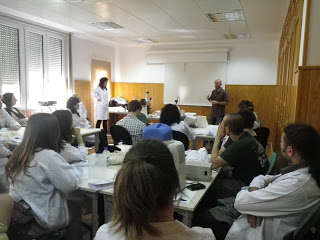
In the afternoon, the first practical session, entitled “Fish sperm cryopreservation and evaluation of quality”, was given by Dr. Sonia Martínez-Páramo (Universidad del Algarve, Portugal) and Dr. David S. Peñaranda (UPV, Spain).
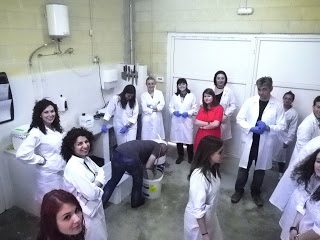
The first part of the session consisted of the extraction of eel sperm by students. Right after, they used a CASA system to evaluate the sperm motility and an ASMA software to determine sperm morphometric parameters. Finally, they used different technologies for freezing sperm samples, such as the use of a biofreezer shown in the following pictures.
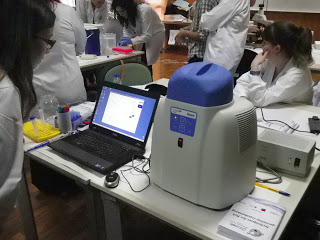
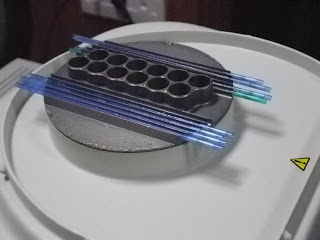
1st AQUAGAMETE Training School
The 1st Training School of the AQUAGAMETE COST Action, entitled “Techniques for fish germline cryobanking” started on the afternoon of May 13th.
Twenty students coming from 10 different countries, most of them preparing their PhD, attended this Training School.
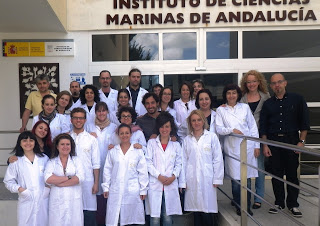
After the distribution of documentation to participants, Prof. Carles Soler, from Universitat de València and PROISER R+D, S.L., gave a lecture entitled “Computer analysis sperm analysis”, in which concepts related to the use of this kind of software, together with some of its current applications were reviewed.
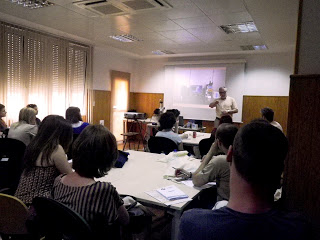
AQUAGAMETE Executive Group meeting
The first Executive Group meeting of AQUAGAMETE COST Action took place last 13th of May, in the facilities of the Instituto de Ciencias Marinas de Andalucía (ICMAN-CSIC), in Puerto Real (Cádiz, Spain). The meeting was attended by Juan F. Asturiano, as Chair of the Action; Dr. Akos Horváth (Szent István University, Hungary), as Vice-Chair; Prof. Andrzej Ciereszko (Polish Academy of Sciences, Poland); Dr. Elsa Cabrita (ICMAN-CSIC, Spain) and Dr. Sonia Martínez-Páramo, University of Algarve, Portugal). During the meeting, the results obtained during the first months were analysed, information on already programmed activities was presented (especially regarding the 4th IWBFG), and potential new activities for the second period of the Action were discussed, which should be ratified by the Management Committee during their next meeting in Faro next September.
Pepa Bayarri joins our group
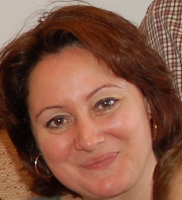
Dr. María José (Pepa) Bayarri has officially joined the Grupo de Acuicultura y Biodiversidad in the Universitat Politècnica de València (Spain). By the moment, her main task will be to assist in managing the AQUAGAMETE COST Action (2012-2016), which involves researchers from 20 different countries.
You can contact her in aquagamete@gmail.com
Welcome, Pepa.
Grants for the 1st AQUAGAMETE Training School
AQUAGAMETE COST Action will fund the attendance of a total of 20 students from 10 different countries (Spain, France, Greece, Hungary, Italy, Poland, Czech Republic, Serbia and Turkey) to the 1st AQUAGAMETE Training School, entitled “Techniques for fish germline cryobanking”,which will be held in the Instituto de Ciencias Marinas de Andalucía (CSIC, Cádiz, Spain) from 13th to 17th of May.
Students will learn the use of several techniques related to gamete cryopreservation and their application, pots-thaw quality evaluation and germline biotechnology.

